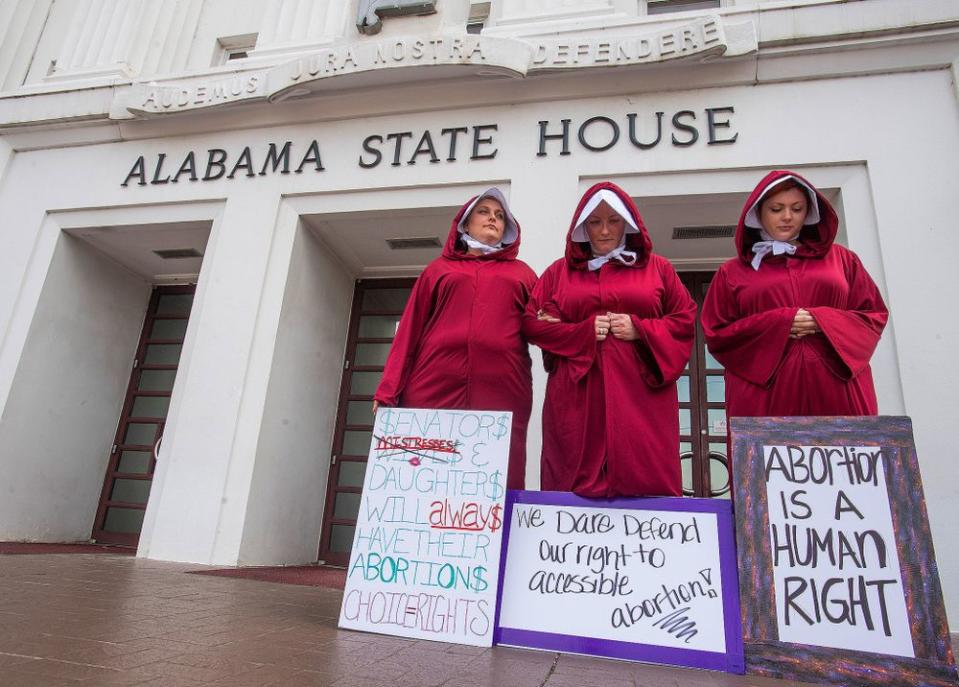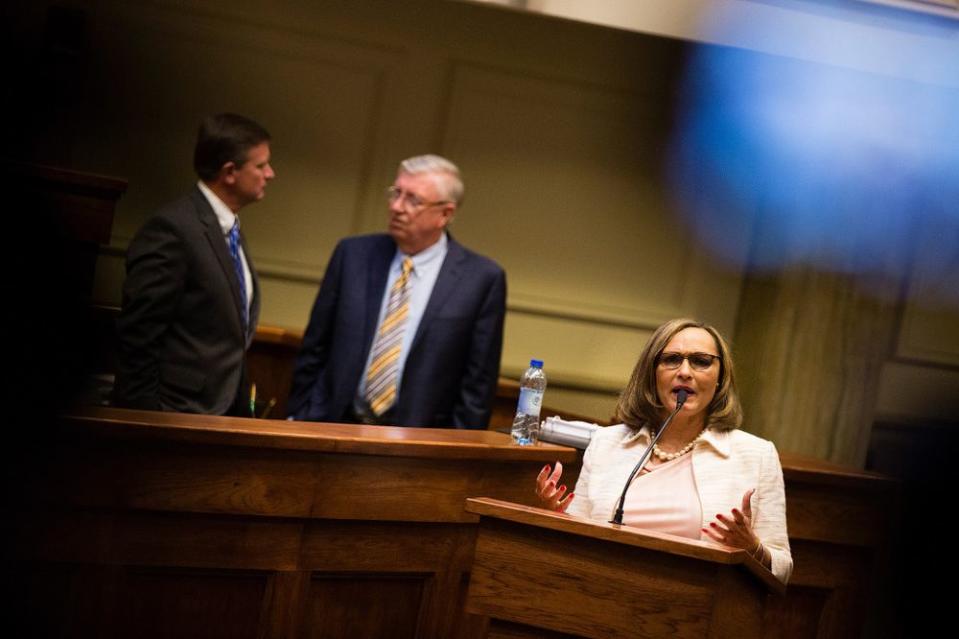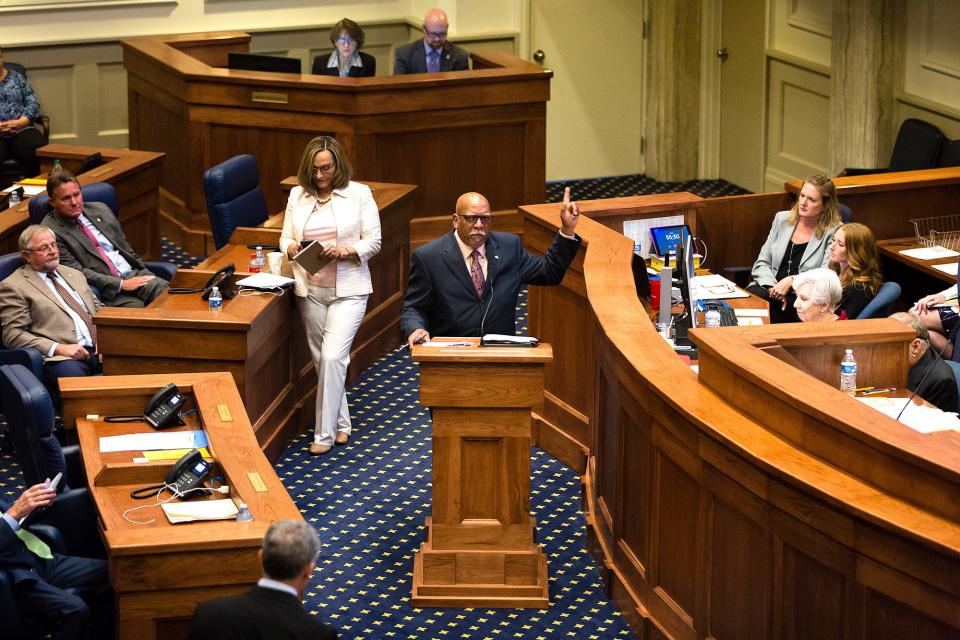Young Rape and Incest Victims Will Be Unable to Get Abortions Under Sweeping Alabama Ban Aimed at Overturning Roe v. Wade
Alabama’s governor on Wednesday signed into law a ban on nearly all abortions, including those for victims of rape or incest — a move designed to push the Supreme Court to overturn its landmark Roe v. Wade decision guaranteeing abortion access nearly 50 years ago.
The bill overwhelmingly passed the state Senate on Tuesday after earlier passage in the state House.
In a statement Wednesday, Gov. Kay Ivey called the ban “a powerful testament to Alabamians’ deeply held belief that every life is precious and that every life is a sacred gift from God.” But she acknowledged the legal fight ahead.
“No matter one’s personal view on abortion, we can all recognize that, at least for the short term, this bill may … be unenforceable. As citizens of this great country, we must always respect the authority of the U.S. Supreme Court even when we disagree with their decisions,” she said.
“Many Americans, myself included, disagreed when Roe v. Wade was handed down in 1973,” she continued. “The sponsors of this bill believe that it is time, once again, for the U.S. Supreme Court to revisit this important matter, and they believe this act may bring about the best opportunity for this to occur.”
The ban makes performing or attempting to perform an abortion a felony, penalizing the doctor with up to 99 years in prison. The woman seeking an abortion would not be prosecuted.
Abortion at any stage will be outlawed, except where the pregnancy poses a serious health risk to the woman. It is the most expansive such ban in the country.
The ban will take effect six months after being signed into law, according to the Associated Press. All sides of the issue acknowledge it will immediately be challenged in court and will likely be halted, temporarily, while various judges weigh in.
But, galvanized by last year’s confirmation of Brett Kavanaugh to replace retiring Supreme Court Justice Anthony Kennedy, the ban’s supporters believe they can at last achieve the decades-long hope of abortion opponents and remove a woman’s constitutional right to end her pregnancy.
The law — in what was widely viewed as the one real dispute in its passage — does not include exceptions for rape or incest because lawmakers wanted to preserve the most stringent restrictions before the Supreme Court, according to AL.com.
“When God creates the miracle of life inside a woman’s womb, it is not our place as human beings to extinguish that life,” said state Sen. Clyde Chambliss, according to the New York Times.
Echoing the stance of many other abortion opponents, state Sen. Greg Reed said after the bill passed the Senate, in part, “An unborn baby is a child who deserves protection — and despite the best efforts of abortion proponents, this bill will become law because Alabamians stand firmly on the side of life.”
The ban’s opponents, including the state Senate’s small Democratic contingent, decried its existence as a draconian affront to women’s personal liberty and a wasteful political maneuver which will leave Alabama taxpayers on the hook for any lengthy legal fight.


According to AL.com, “In 2016 the state paid the ACLU and Planned Parenthood $1.7 million after a law was passed requiring abortion providers to have hospital admitting privileges was struck down as unconstitutional.”
In a statement, according to the Times, Planned Parenthood Southeast Advocates Staci Fox said: “Banning abortion is bad enough. Imprisoning doctors for providing care goes beyond the brink. Alabama politicians will forever live in infamy for this vote and we will make sure that every woman knows who to hold accountable.”
Linda Coleman-Madison, one of the Alabama Senate’s few women, reiterated the longstanding critique of abortion restriction: that it will not end abortions but rather make pregnant women seeking them more desperate and at more risk.
“We want abortions to be safe, and we want them to be few, but it should be legal, because there will be abortions,” she said, according to the Times.
“The people who have the wherewithal will fly out of state,” she said. “Not everyone can afford to do that.”
Democratic state Sen. Bobby Singleton unsuccessfully urged his colleagues to include exceptions for rape and incest in the abortion ban, according to AL.com. He invited several rape survivors with him to the Senate, referring to their stories as he spoke.
“This is just a shame, this is a disgrace, this is a travesty,” he said.
Rep. Terri Collins, a member of the Alabama House who introduced the ban, reportedly said that if Roe v. Wade were overturned, individual states could then tailor their abortion laws as desired.
According to the AP, she said this initial ban was not designed as a lasting law and could be modified should the Supreme Court side with abortion opponents. She said she would support exceptions for rape and incest victims at that point.

“My goal with this bill is not to hurt them in any way,” Collins said, according to AL.com. “My goal with this bill, and I think all of our goal, is to have Roe vs. Wade turned over, and that decision be sent back to the states so that we can come up with our laws that address and include amendments and things that address those issues.”
While polling has consistently shown that a majority of Americans support abortion access in most cases, the issue is extremely divisive among various political and religious groups.
Alabama, long one of the most conservative states in the country, last year modified its constitution to “support the sanctity of unborn life and the rights of unborn children.” Voters passed the amendment 60-40 percent.
Similar anti-abortion efforts are underway elsewhere in the country, including Georgia and Ohio. Conversely, according to the Times, states such as New York and Vermont have taken proactive steps to protect abortion access.


